Reintroducing where we work
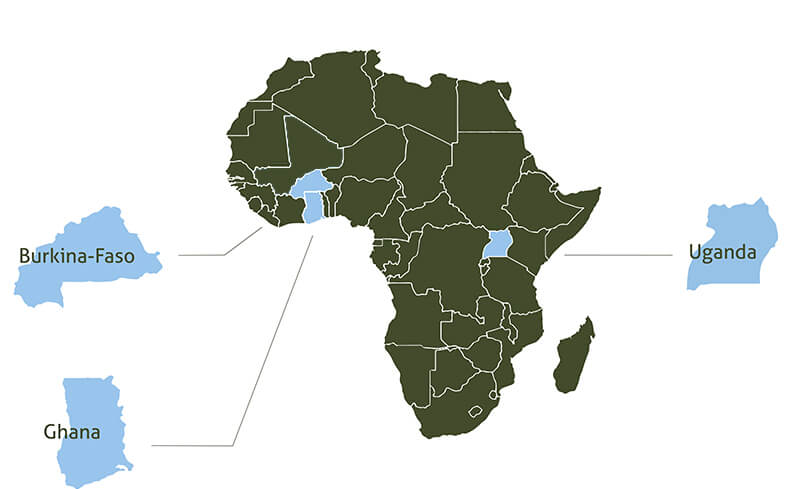

The greatest burden of malaria is carried by sub-Saharan Africa, where 96% of all malaria-related deaths occur and where domestic resources are least available to fight the disease.
Target Malaria’s work focuses only on the mosquitoes that are the primary vector for malaria in this region. We are currently actively working in Burkina Faso, Ghana and Uganda, all malaria-endemic countries. In addition to this, we are working in Italy, the UK and US.
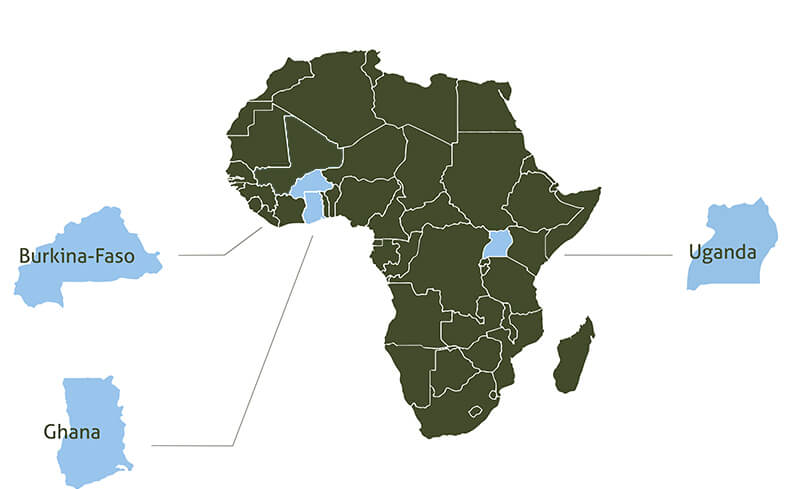
Burkina Faso
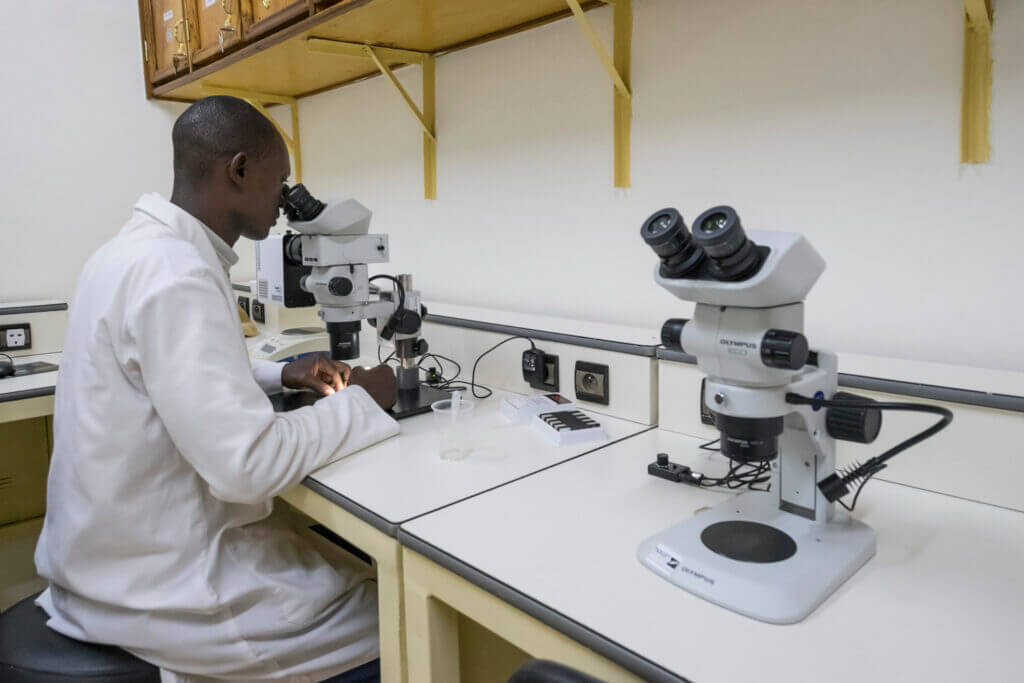
In Burkina Faso, our team works in collaboration with the Institut de Recherche en Sciences de la Santé (IRSS), based in Bobo-Dioulasso and is headed by Dr. Abdoulaye Diabaté. Our team at the IRSS joined Target Malaria in 2012, and since then Target Malaria Burkina Faso has imported, studied in containment and conducted a small-scale release of the sterile male mosquito. This was the first time a genetically modified mosquito was studied and released in Africa. In 2022, the team imported a new strain of a genetically modified mosquito: the male bias. It is a non-gene drive genetically modified mosquito that mostly has male offspring. This mosquito will be studied in containment at the IRSS insectary and possibly released in the future if the regulatory authorities provide their approval and the affected communities give their agreement.
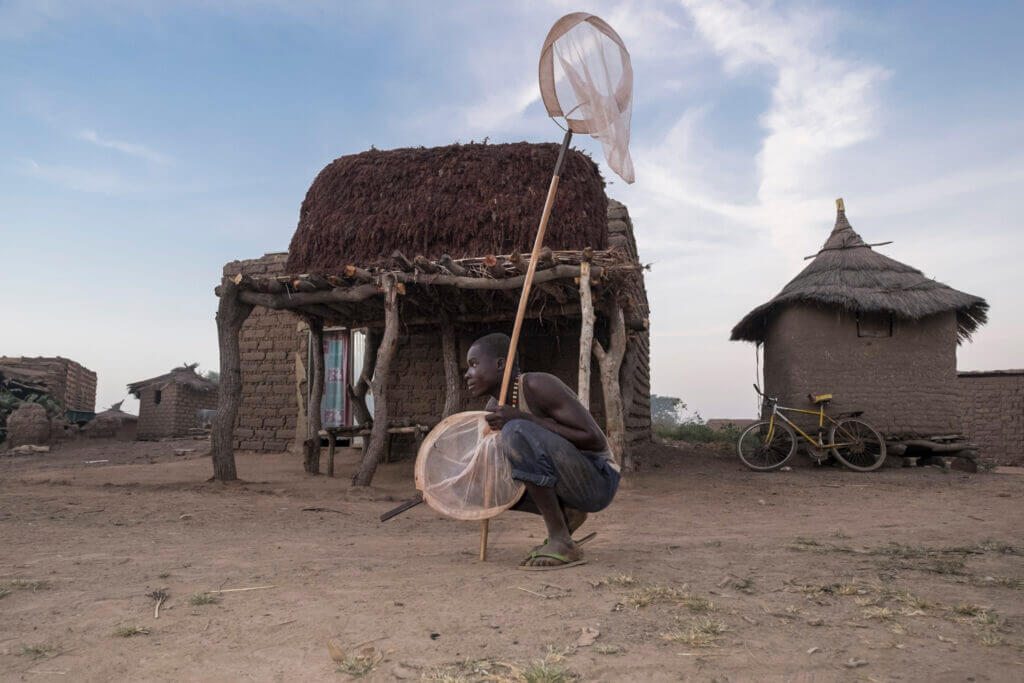
The stakeholder engagement team started engaging communities very early on in the project and has been innovating by working in local languages, using a variety of tools to share information about the project and making sure the communities agreed to the research being carried out.
Target Malaria built and recently renovated the Arthropod Containment Level 2 insectary at the IRSS.
The team in Burkina Faso is made up of biomedical entomologists, molecular biologists and microbiologists, socio-anthropologists, specialists in stakeholder engagement and communication, quality assurance and specialist insectary staff. Researchers working on the project also act as mentors for PhD and master’s students from Burkina Faso and other African countries.
Ghana
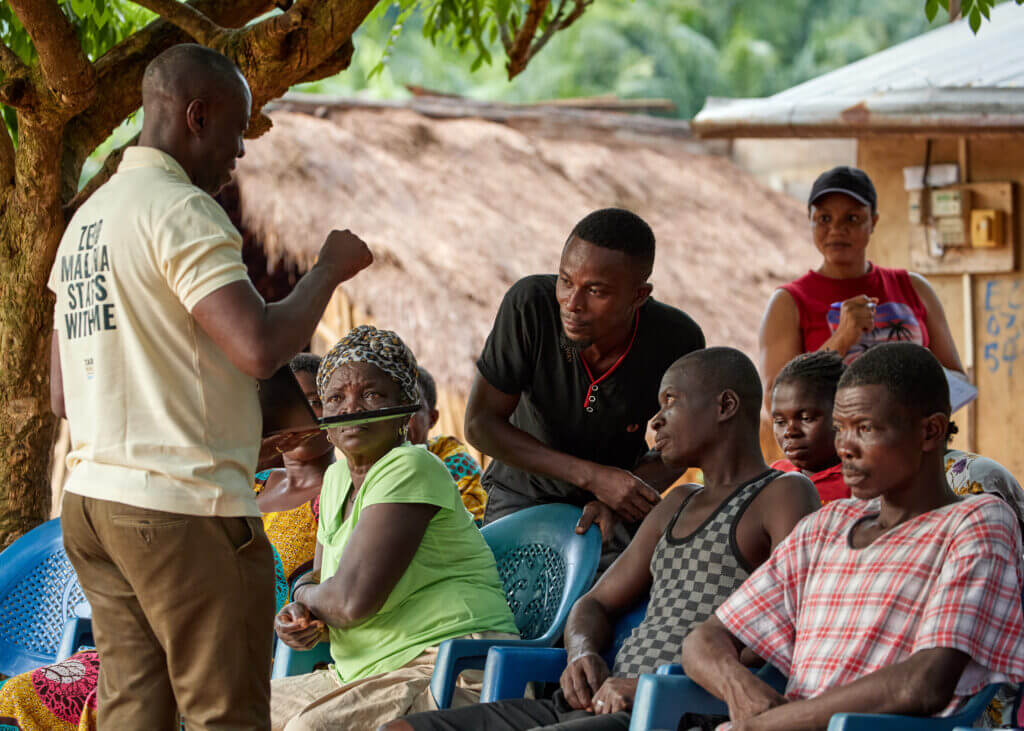
In Ghana, our team works in collaboration with the University of Ghana, based in Legon, Accra and is headed by Dr. Fred Aboagye-Antwi. The team joined Target Malaria in 2018 and specialises in mosquito behaviour and ecology. The Field Entomology and Ecology teams are conducting data collection activities and the Stakeholder Engagement team is actively engaging various key stakeholders. A new insectary laboratory was recently inaugurated at the University of Ghana to facilitate some of the planned research. The insectary will not be working with genetically modified mosquitoes.
The team in Ghana are based at the Department of Animal Biology and Conservation Sciences in the University of Ghana. They have insectary staff, scientists, stakeholder engagement specialists and communication advisors. The scientists are providing mentorship to PhD and master’s students.
Uganda
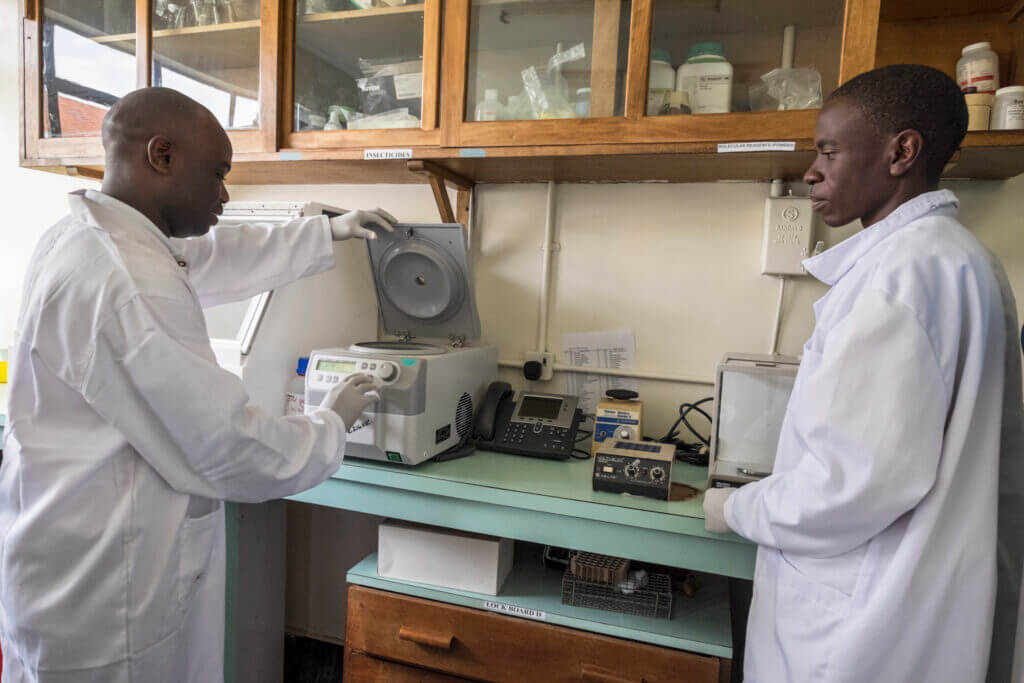
In Uganda, our team works in collaboration with the Uganda Virus Research Institue (UVRI), based in Entebbe and is headed by Dr. Jonathan Kayondo. Target Malaria activities started in 2012 and fall under the Department of Entomology and Vector Biology, which focuses on the study of various arboviral vectors, especially yellow fever, dengue, chikungunya and malaria. The Division is involved in capacity building and provides advice on vector control to the Government of Uganda.
The team in Uganda has been working on facility readiness for future work on genetically modified mosquitoes. Target Malaria buit a new Arthropold Containment Level 2 insectary at UVRI. It was inaugurated in 2019. There isn’t any genetically modified mosquito in Uganda at the moment, but the team has been getting ready working with wild type mosquitoes and conducting stakeholder engagement activities.
Target Malaria employs a diverse team in Uganda including qualified insectary staff, scientists and an engagement and communication team. The scientific team is mentoring students in PhDs and master’s degrees for their contributing work in training and deepening the research in biology and biotechnologies.
Italy
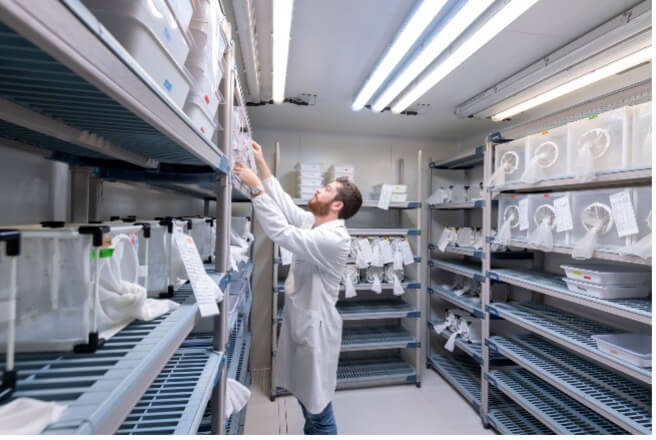
In Italy, Target Malaria’s partner is Polo d’Innovazione di Genomica, Genetica e Biologia. Polo GGB started partnering with Target Malaria in 2015. The Genetics and Ecology Research Centre in Terni hosts a state-of-the art insectary for rearing and testing genetically modified mosquitoes in an Arthropod Containment Level 2 laboratory.
The Polo GGB team is involved in the development of gene drive technology using insect engineering to develop mosquito strains that could be used to control malaria transmission. To reduce mosquito populations, genetic technology targets the fertility of natural populations. The Genetics and Ecology laboratory hosts large cages housing populations of mosquitoes in semi-natural environmental conditions. By mimicking tropical environmental settings under confined and controlled conditions, researchers are working to determine the efficacy of the technology to reduce the mosquito population over time in a more challenging environment.
UK
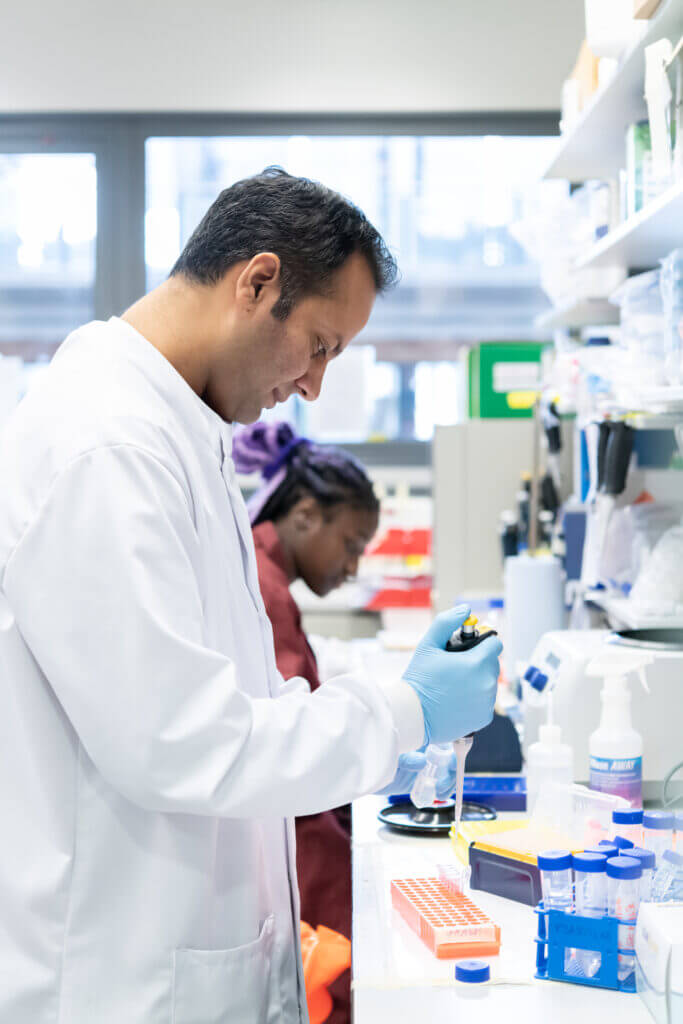
Imperial College is the host institution for the Target Malaria consortium and the main site where the genetic modification of mosquitoes started and where genetic technologies that aim at mosquito population suppression, including gene drive is developed.
Imperial College serves several functions for the consortium:
- Professor Andrea Crisanti/South Kensington lab: A team made up of senior researchers, post-doctoral, PhD and master’s students develops genetically modified mosquitoes that could reduce the mosquito populations that transmit malaria. The team generated the first gene drive mosquitoes that are still being tested in the labs at Imperial and at PoloGGB in Italy preparing the strains for field evaluations.
- Malaria Modelling Group, St Mary’s Campus: The group develops computational models of malaria epidemiology based on data from multiple African settings. In collaboration with modellers based at Oxford University, researchers are applying these models to investigate the potential of gene drives to reduce the burden of malaria throughout a range of African regions that vary in their local ecological and epidemiological characteristics.
- Silwood Park: The global team providing support to the entire consortium on Target Malaria’s three pillars (Science, Regulatory affairs and Stakeholder engagement) as well as the support functions are part of Imperial’s Faculty of Natural Sciences, Department of Life Sciences, located at Silwood campus.
Through the new Department of Biology, the team at Oxford University focuses on ecological studies in partnership with scientists at the University of Ghana as well as gene drive modelling, entomological data modelling and lab-based experimental modelling.
US
Target Malaria activities in the USA are hosted at the Centers for Disease Control and Prevention (CDC) on the main campus adjacent to Emory University. They are administered by the CDC Foundation under the Division of Parasitic Diseases and the Malaria and Entomologeny Branch.
Target Malaria at CDC conducts research related to genetically modified mosquitoes. Investigations are conducted to compare modified to wild mosquitoes for important characteristics, such as insecticide resistance, ability to develop malaria parasites and o’nyong nyong virus. Development of strains with different genetic backgrounds is also performed, and their life history characteristics, genetics and phenotypes are investigated. Target Malaria conducts in vitro Plasmodium falciparum gametocyte culture for experimental infections and all aspects of o’nyong nyong virus culture and assays.
Target Malaria at CDC also supports various aspects of African insectary operations and field activities such as training, advice, insectary audits and developing standard operating procedures.
